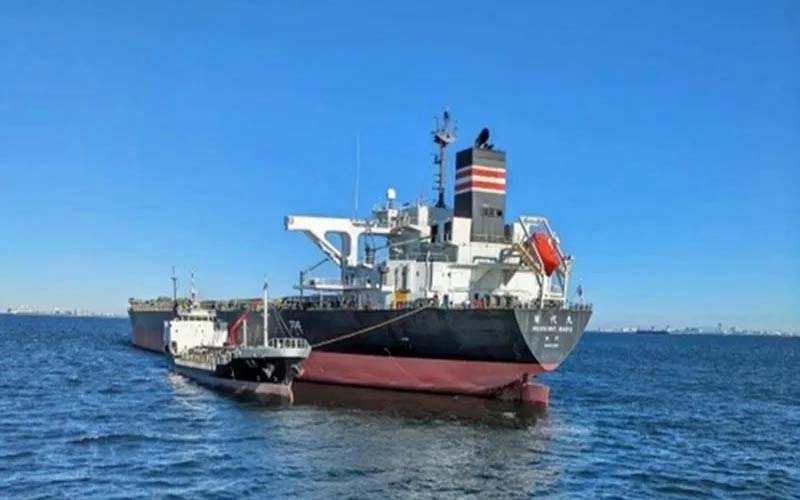NYK has begun a biofuel test run on its coal carrier ‘Noshiro Maru’, which is operated for Tohoku Electric Power Co, believed to be the first time in Japan that a coal carrier has been used to test biofuel for a domestic power utility company.
Mitsubishi Corporation Energy, Keihin, facilitated the supply of biofuel for the vessel. The biofuel used is made from organic resources (biomass) of biological origin, such as agricultural residues and waste cooking oil, and is considered to produce virtually zero CO2 emissions. Although biofuels emit CO2 during combustion, the plants from which the biomass is made absorb CO2, meaning that emissions during direct combustion are considered to be virtually zero.
Since the biofuel can be used in ship engines normally powered by HFO, biofuels are considered a key means of reducing GHG emissions in the transition period from fossil fuel to zero-emission fuels.
Using biofuel to reduce GHG emissions at sea contributes to reducing Scope 3 GHG emissions generated by transporting cargo. Scope 3 refers to indirect emissions associated with the entire supply chain, including raw material sourcing, product transport, product use, and disposal. NYK says it will continue to focus on introducing biofuels and other next-generation fuels, thus contributing to reducing GHG emissions in customers’ supply chains while promoting decarbonisation in marine transport.
Image: Supply of biofuel for ‘Noshiro Maru’ (source: NYK)



